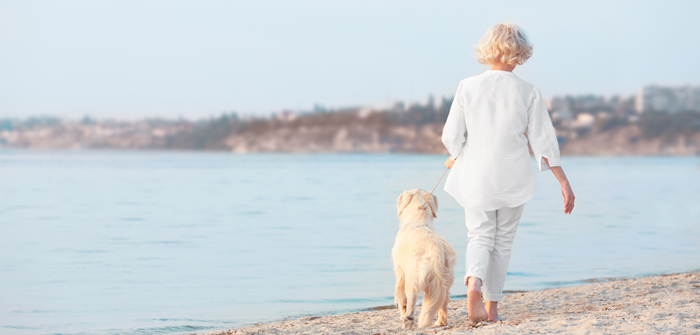Summer may conjure up images of long walks, sunbathing and relaxing in gardens, but it is also the time of year when many dogs are at risk of serious damage from the heat.
Harm to dogs primarily comes from cars and hot surfaces. It only takes an outdoor temperature of 22 degrees for the inside of a car to feel like 47 degrees.
Pet wellbeing company, Paws, provides advice on how to look after dogs in the summer, as RSPCA revealed that it received 8,290 calls last year concerning heat exhaustion in animals.
Stephanie Wenban, vet and dog wellbeing expert at Paws, offers the following advice for looking after dogs in the summer: “Avoid walking dogs during the day when the sun is out, instead go for walks in the morning or evening when the weather is cooler and there is no beating sun; and always provide them with plenty of shade and access to fresh water.
“However, dogs cool themselves by panting and evaporation, in high humidity this is less effective and shade alone is not enough so be sure to seek air conditioning.”
Other tips include:
- Avoid burns by checking the surface temperature before taking your dog out. Place your hand on the road to check the road temperature. If it is too hot to hold your hand there for seven seconds then it is too hot for your dog’s paws.
- Different breeds are able to cope better in heat than others. Brachycephalic breeds such as Pugs and Bulldogs are more susceptible to health problems in summer than others as their short nose makes it difficult for them to pant sufficiently to cool down. Be very cautious exercising these breeds in hot weather as they can very easily overheat.
- Consider buying cooler mats and cooler jackets which can help keep your dog cool.
- Try freezing treats or toys to give to your dog and help keep them cool, such as a frozen stuffed toy.
- Setting up a paddling pool or sprinkler in the shade can offer your dog a nice opportunity to cool down if needed
- Watch out for signs of heat stroke including: dribbling, difficulty breathing, vomiting, diarrhoea, seizures and collapse – this is an emergency and you should go straight to a vet.


